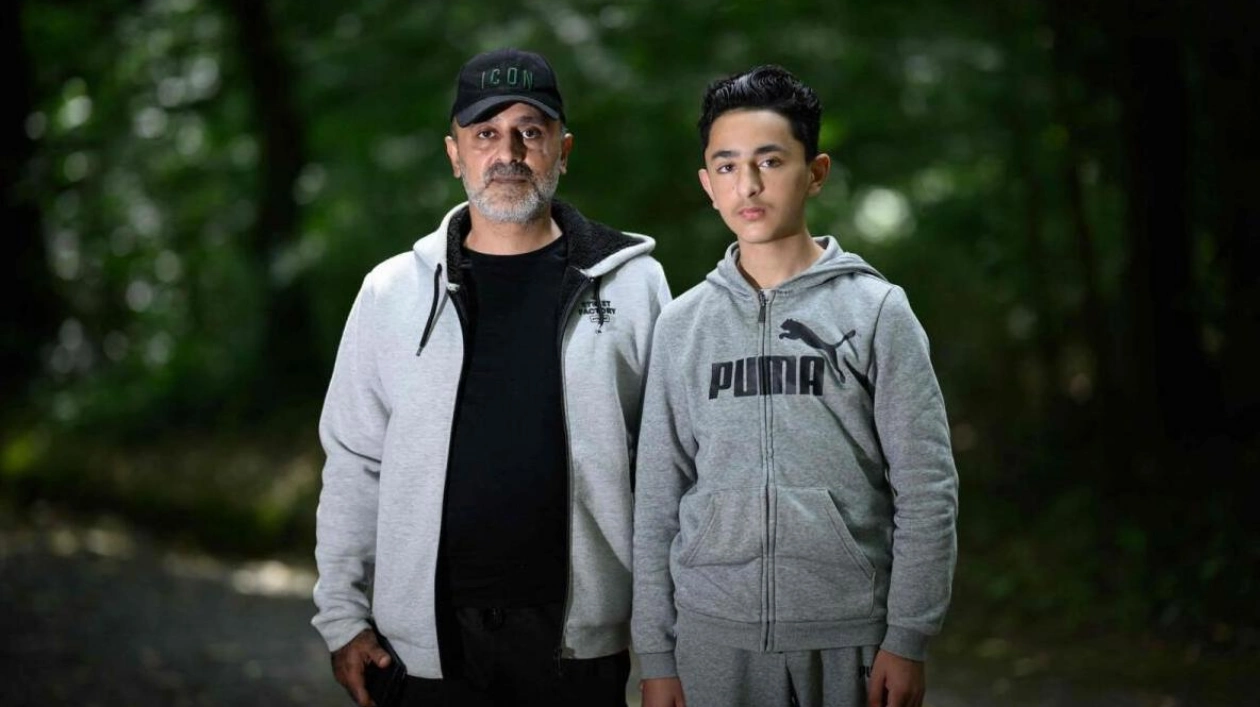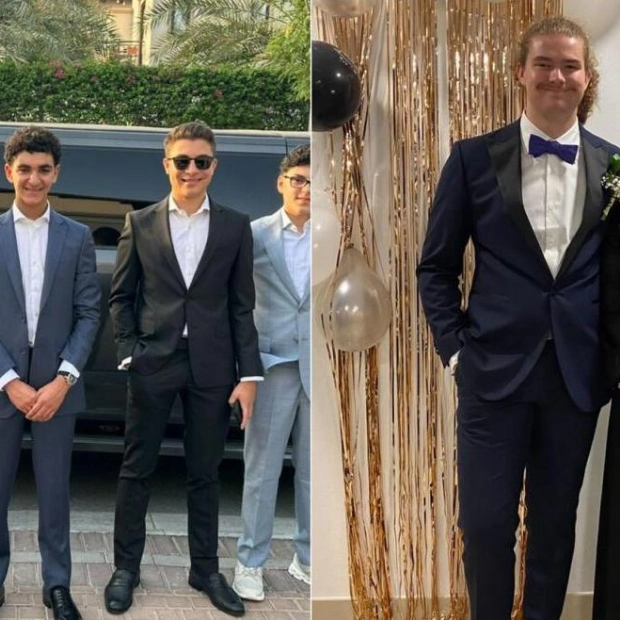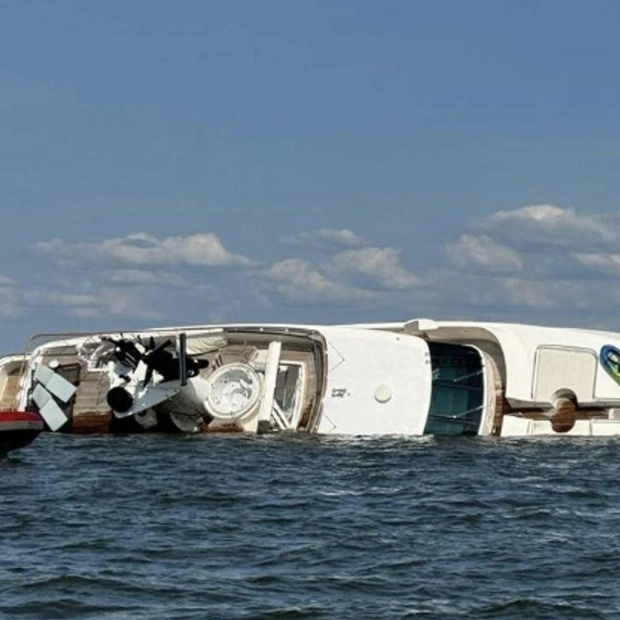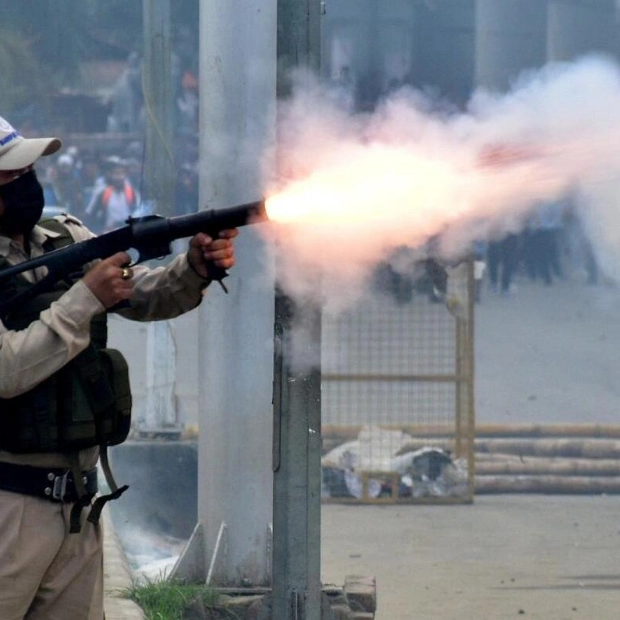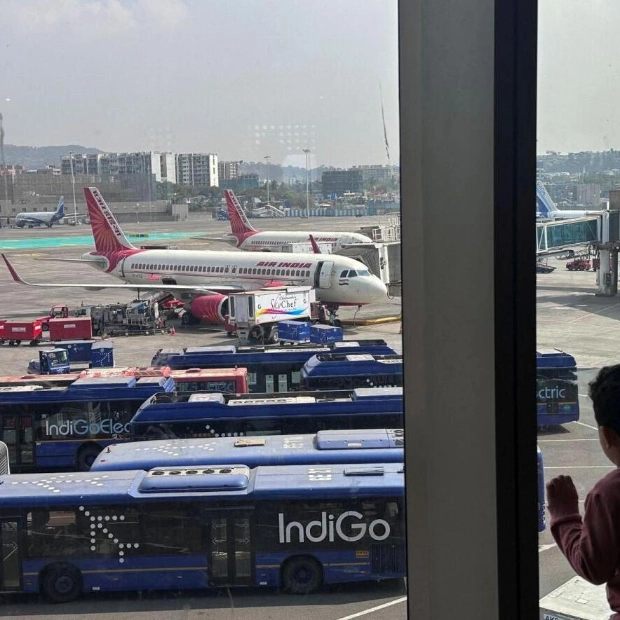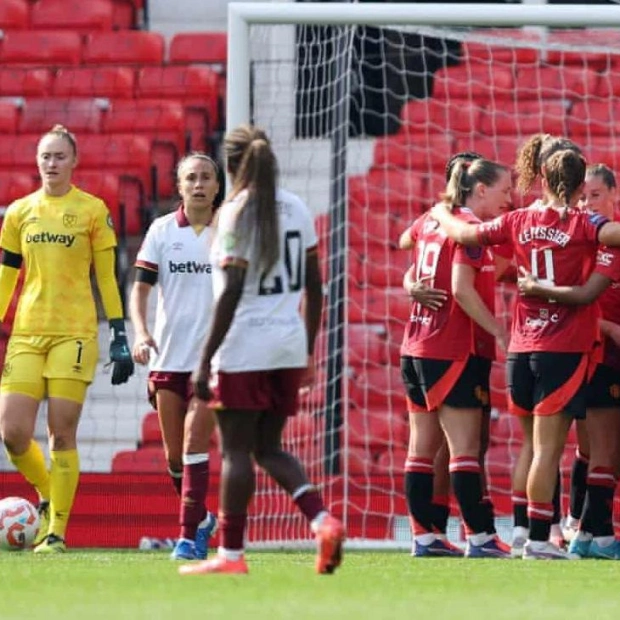During the early stages of the Gaza conflict, Israeli air strikes devastated Palestinian social worker Tareq Abu Eita's neighborhood, instantly upending his life. On October 14, the bombardment destroyed the walls of his two-story family home, claiming the lives of his 77-year-old father Hamed, his wife Muntaha, 37, and his son Ilyas, 11. The tragedy also claimed the lives of his two nieces, Mira, 8, and Tala, 14.
Abu Eita, tearfully recounting his loss in Rennes, France, showed AFP photos of his wedding and his late son on his phone, stating, "It's all gone." He and his surviving son, Fares, 14, were among the few Palestinians injured in the war to receive specialized medical treatment in France. The conflict erupted after Hamas attacked Israel on October 7, resulting in the deaths of 1,197 people, predominantly civilians, according to AFP's tally of Israeli figures. Hamas also captured 251 hostages, 111 of whom remain in Gaza, including 39 reported dead by the Israeli military.
Israel's retaliatory campaign has reportedly killed at least 39,550 people, according to health authorities in the Hamas-controlled territory, which does not differentiate between civilian and militant casualties. Abu Eita and Fares were severely injured outside their home in the Jabalia refugee camp during the strikes. Fares suffered a significant skull fracture, leading to a coma lasting over three weeks. Nine months later, as Israeli forces continue to attack Gaza, both are recuperating in France.
However, Abu Eita fears for his other two sons, Jud, 10, and Ahmad, 15, whom he left behind in besieged Gaza. "It'll be a disaster if anything happens to them," he said, expressing his inability to cope with further loss. He has been assured that upon receiving asylum, he can apply to bring his children to France, but he remains in limbo, agonizing over the difficult choices he had to make.
The Israeli offensive has injured over 91,000 people since October 7, according to Gaza authorities. The UN agency reports that approximately 10 children in Gaza lose one or both legs daily. Asef Abu Mhadi, a 12-year-old aspiring soccer player, is one such victim. He was playing outside his home in Nuseirat refugee camp on October 16 when the area was bombed, resulting in the loss of his leg. Asef was brought to France for treatment with his mother, Raja Abdulkarim Abu Mhadi, but she was unable to bring her other five children due to restrictions imposed by Israeli authorities or the closure of the Rafah border crossing.
Majed Abu Shamla, 26, watched the conflict unfold from abroad while his family attempted to escape. He, his mother, seven brothers, and his three-year-old niece have since reunited in France. However, an Israeli air strike in Rafah on December 13 killed his father, Ahmed Abu Shamla, a staff member at the Gaza French Institute. Despite being granted permission to leave Gaza with part of his family, he delayed his departure, waiting for his last four sons to be allowed out. They finally managed to leave in late December.
The family now resides in the Paris region, but Abu Shamla finds it challenging to move forward. "They're glued to the news all day. There's still family over there," he said in Paris. He has lost an uncle and three cousins in the war, and his paternal grandmother died recently due to a lack of medication in Gaza. Abu Shamla has lost contact with many of his friends, with an estimated 20 killed. "Today people are no longer shocked that someone is dead, but that they survived. That's how bad it's become," he concluded.
